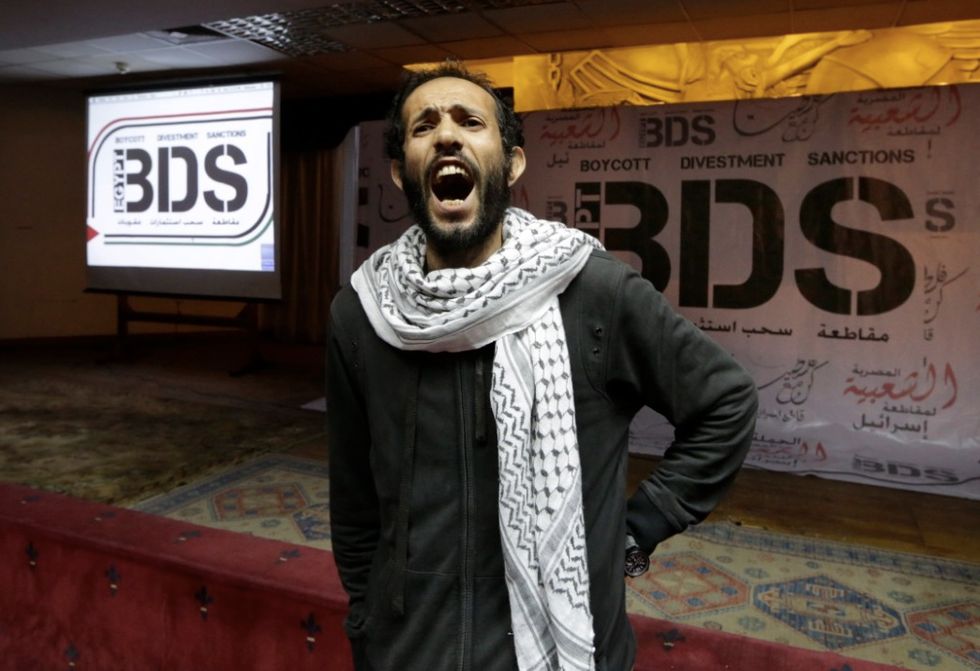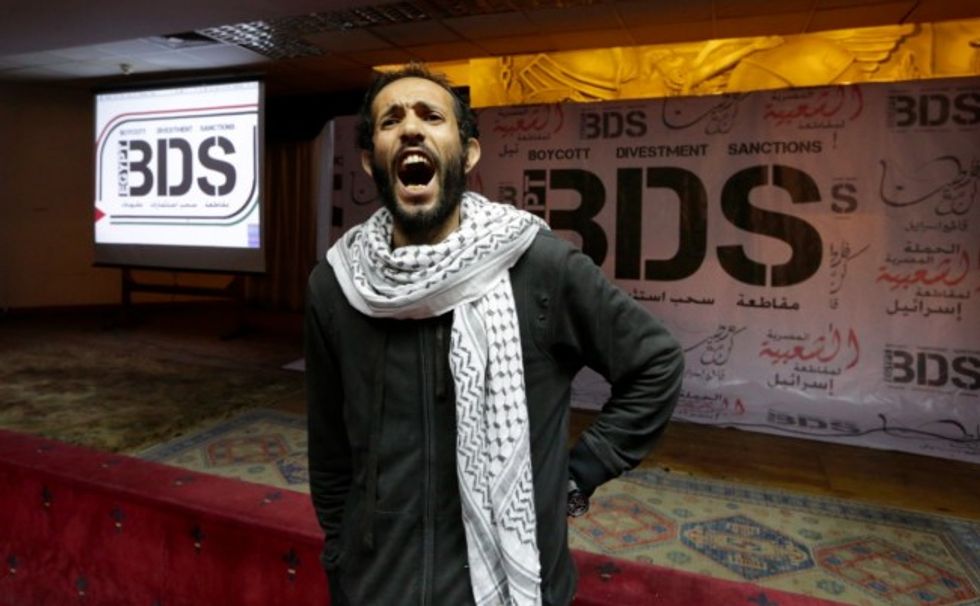
© 2025 Blaze Media LLC. All rights reserved.
Anti-Israel Boycott Movement Suffers Slew of Cyberattacks — and Who BDS Suspects Is Behind Them Won't Likely Come as a Surprise
June 02, 2016
Knocked out the BDS website for several hours at a time.
JERUSALEM (TheBlaze/AP) — The international movement calling for a boycott against Israel on Thursday said its website was repeatedly attacked earlier this year and raised suspicions that Israel was behind the attacks.
The BDS movement — Boycott, Divestment and Sanctions — released a report Thursday showing that its main website suffered six attacks in February and March. The denial of service attacks, which work by flooding a target website with bogus traffic, knocked out the BDS website for several hours at a time.

The report, compiled by nonprofit online security service eQualit.ie, said the attacks had a level of "sophistication and commitment" it normally does not see. It also noted that an unidentified Israeli human rights group had been attacked at the same time, indicating there was a "common adversary."
Assigning responsibility for cyberattacks is notoriously difficult and the report didn't speculate on who might be behind the rogue traffic.
In a statement, the BDS movement said the "advanced technology used in the attacks and the size of the botnets involved may show that Israel was directly involved" but it offered no hard evidence.
Israeli cybersecurity expert Gilad Yoshi said such attacks do not cause serious damage, adding it was unlikely a government was behind them.
"These are not high-level attacks," said Yoshi, an expert at the electronic defense training company CyberGym.
BDS calls for boycotts, sanctions and divestment from Israel in what it calls a nonviolent struggle against occupation. Israel says BDS' goal is to destroy the country, and it has identified the movement as a serious threat.
The Israeli government has earmarked funds for Israeli tech companies for digital initiatives aimed at gathering intelligence on activist groups and countering their efforts.
Initiatives are largely being kept covert. Participants at one recent invite-only forum, held on the sidelines of a cyber technology conference, repeatedly stood up to remind people that journalists were in the room.
Israel's Ministry for Strategic Affairs, which is spearheading the government's battle against BDS, was reviewing Thursday's report and had no immediate comment.
Want to leave a tip?
We answer to you. Help keep our content free of advertisers and big tech censorship by leaving a tip today.
Want to join the conversation?
Already a subscriber?
Sr. Editor, News
Dave Urbanski is a senior editor for Blaze News.
DaveVUrbanski
more stories
Sign up for the Blaze newsletter
By signing up, you agree to our Privacy Policy and Terms of Use, and agree to receive content that may sometimes include advertisements. You may opt out at any time.
© 2025 Blaze Media LLC. All rights reserved.
Get the stories that matter most delivered directly to your inbox.
By signing up, you agree to our Privacy Policy and Terms of Use, and agree to receive content that may sometimes include advertisements. You may opt out at any time.



